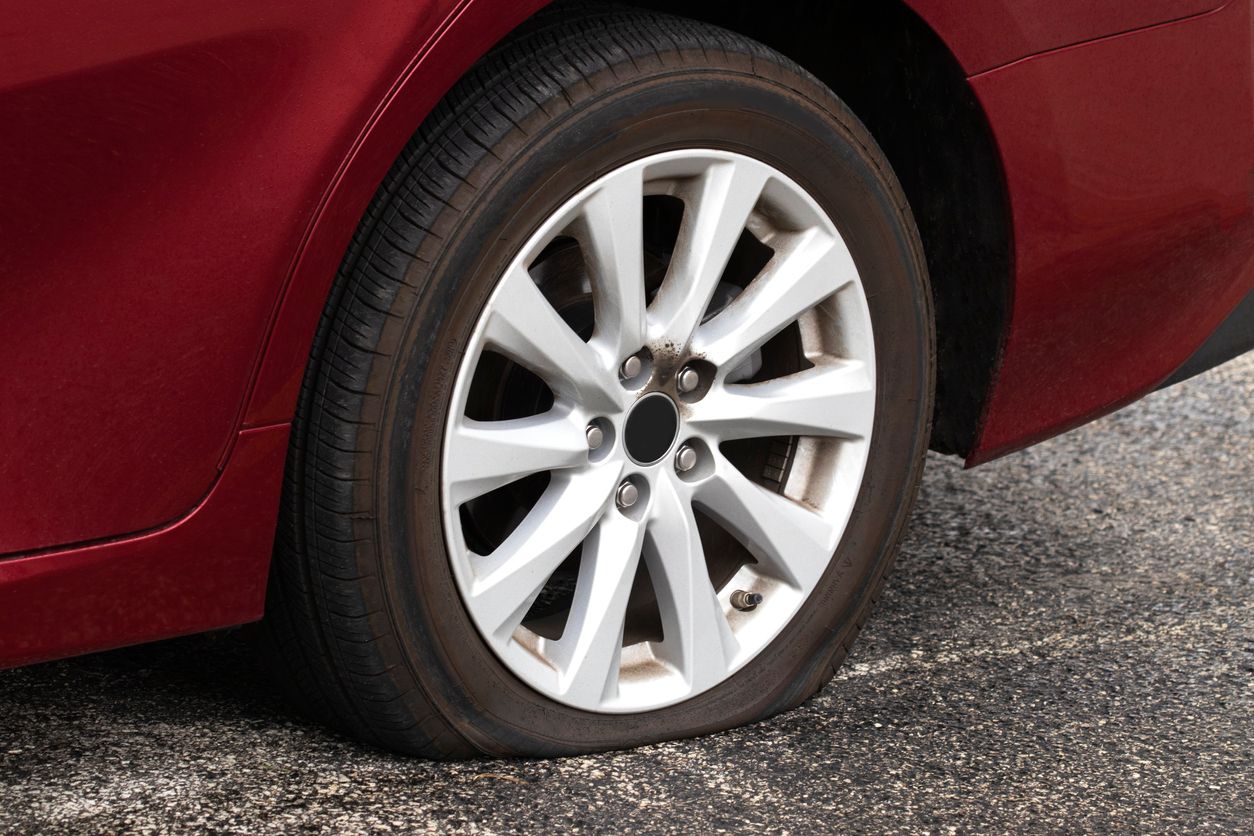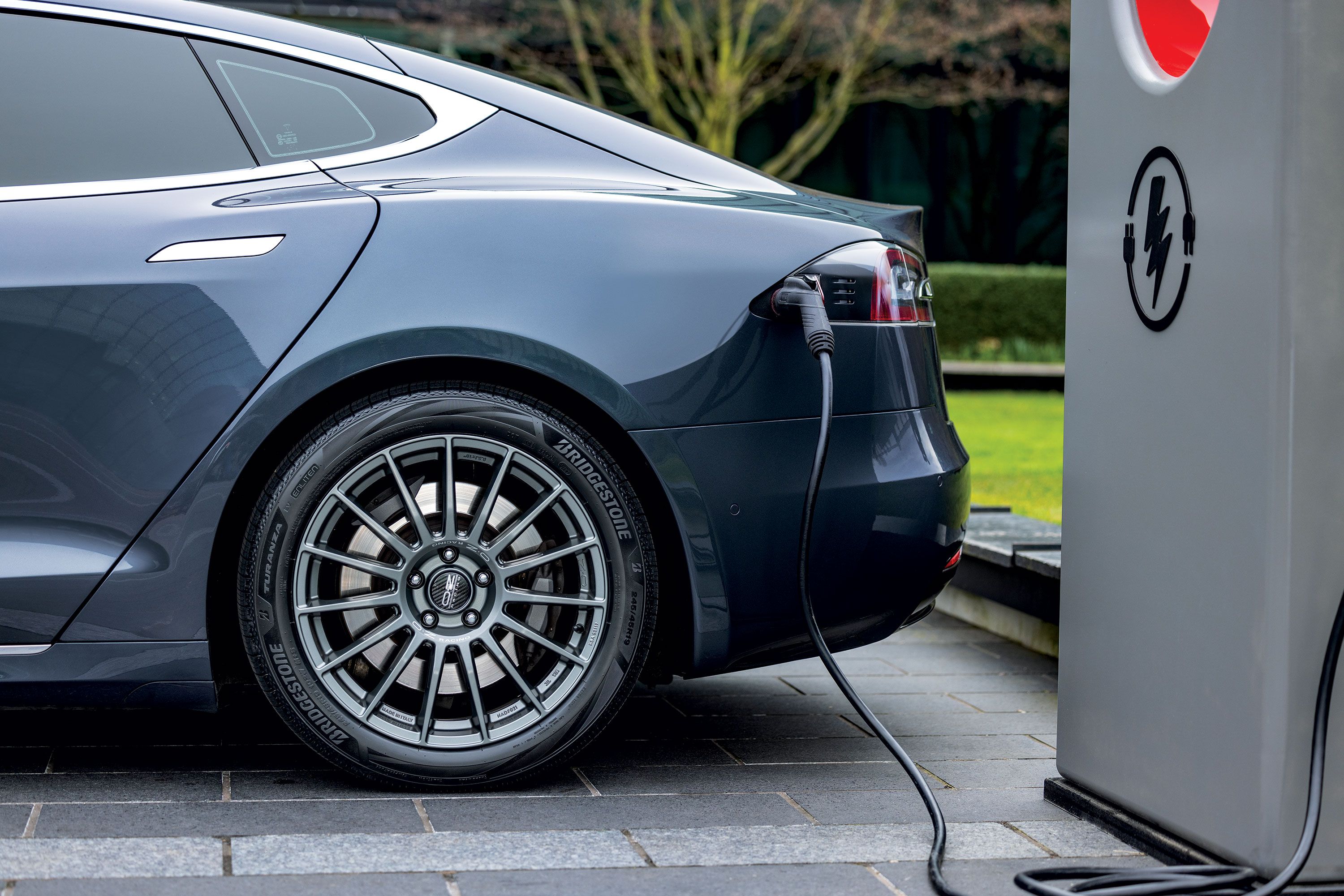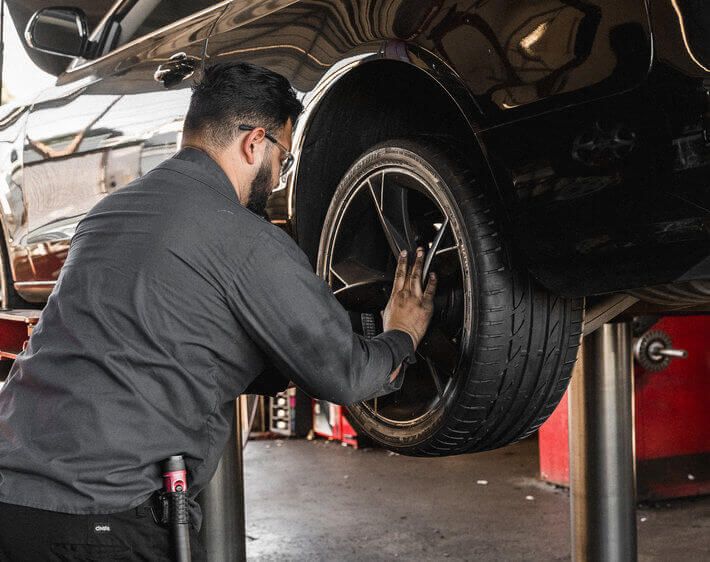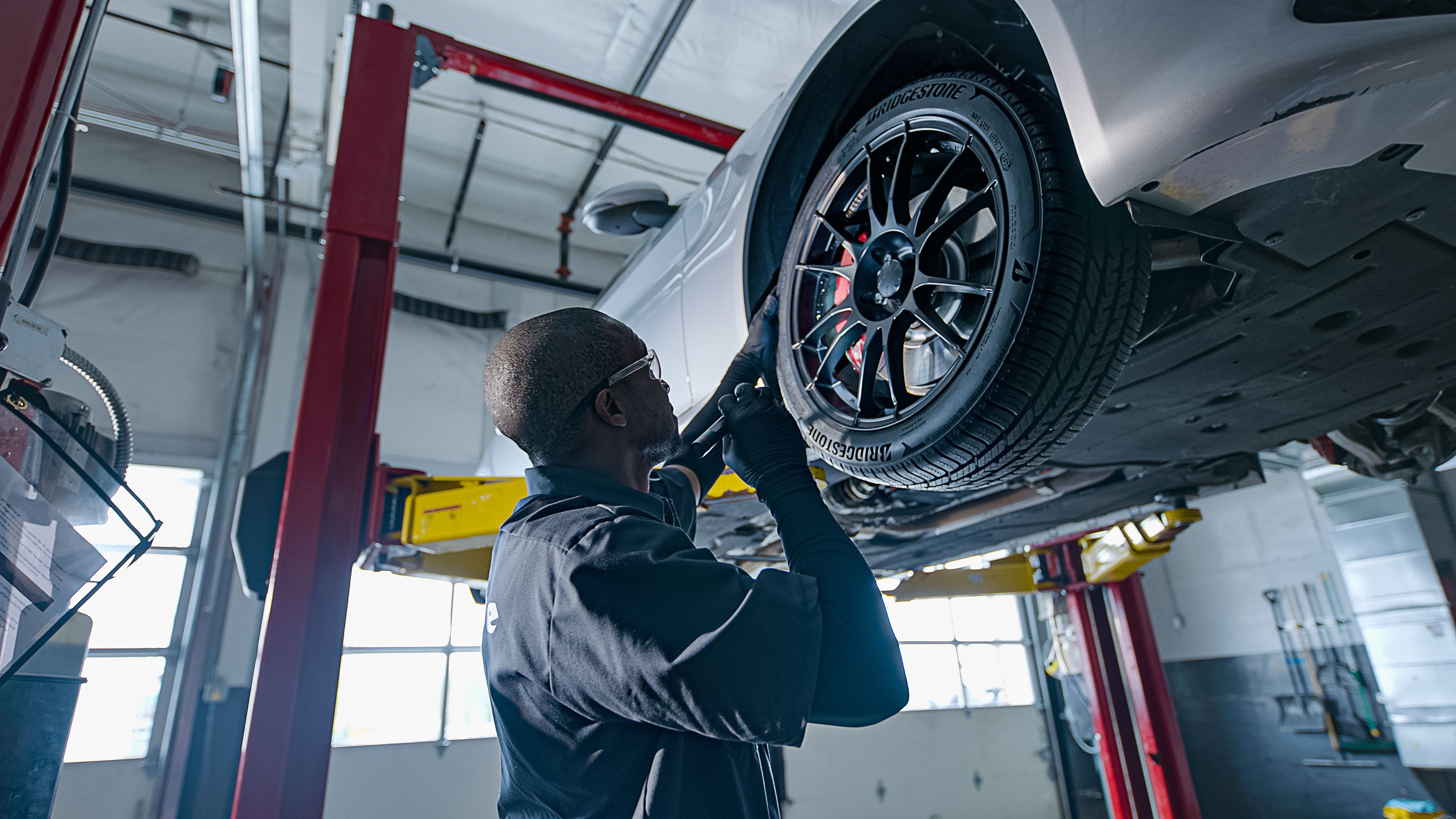Not only is having slow leaks in your car tires annoying, but it can also compromise your road safety, fuel economy, and tires' lifespan. There are several common causes of slow tire leaks, and it's not always easy to determine which is affecting your tires.
Learn how to tell if your tire is losing air, what can cause the issue, and how to stop slow leaks for good.
What Is a Slow Tire Leak?
Tires naturally lose about 1 psi of air per month and should be monitored regularly. A slow tire leak occurs when your tire gradually loses more than this typical air loss. Over time, air leakage can cause a flat or underinflated tire. The source of the leak can be challenging to detect, and unlike a big tire puncture, you'll rarely hear hissing noises when they occur. Each part of a tire is susceptible to slow leaks, making the cause of air loss that much harder to detect.
How To Tell If Your Tire Has a Slow Leak
The first thing you'll probably notice is an illuminated Tire Pressure Monitoring System (TPMS) warning signal on your dashboard, if equipped. The TPMS monitors tire pressure and notifies you when there's a significant PSI issue.
If your TPMS sensor frequently lets you know that one or more of your tires are low in pressure, the chances are likely that you have a slow leak. You can inflate your tires on your next gas pump visit, but if the problem persists, stop by your local Firestone Complete Auto Care center and let us have a look.
What Can Cause a Slow Tire Leak
Many drivers wonder, “why do my tires keep losing air?” But, slow tire leak causes vary from tiny punctures to wheel and valve stem damage. Whatever the cause, it's essential to prevent air leakage. Driving on a tire with a slow leak can worsen its condition and impair your vehicle's handling, which can be dangerous.
Here are the most common reasons for slow-leak tires.
1. Tire Puncture
Tire punctures don't always result in immediate flats or blowouts. In fact, sharp objects like nails, screws, rocks, broken glass, and other road debris can get lodged in the tire and keep the tire "functional" as the air is slowly leaking. Other times, a sharp object may make a tiny hole and fall out, but you may not notice the immediate effect since the puncture is mild.
If your tire is still in good shape and the puncture is repairable, Firestone Complete Auto Care tire repair experts may be able to patch your tire. The solution may be as simple as a tire patch and plug if the puncture is addressed early on.
2. Valve Stem Damage
The valve stem is a part of the wheel that helps regulate tire air pressure. You can release the air or inflate your tires through it. This valve stem is comprised of a few different parts, mainly the valve stem core and the valve stem cap. If you lose the cap, dirt and debris may get stuck around the valve stem core, which can cause air leakage. The valve stem can also become corroded, brittle, or cracked due to combinations of moisture, road salt, chemicals, and age.
It's a good idea to replace your valve stems every time you get a new set of tires. That way, you can help prevent this issue and save yourself the headache of slow tire leaks. That's why our technicians at Firestone Complete Auto Care replace rubber valve stems or install the TPMS service kits with every new tire installation!
3. Leaks Around the Tire Bead And Wheel Rim
Slow tire leaks can also occur where the tire bead meets the wheel's rim. The tire bead should snugly fit the rim because it seals the tire to the wheel for proper inflation. However, the rim can corrode from exposure to road salt and other aggressive agents, leading to tiny crevices where air can escape through the bead-rim connection.
Rim leaks can also result from damaged wheels. So, if you hit a curb or hit a pothole, your slow leaks may come from a damaged rim. Whatever the cause of tire bead leaks, Firestone Complete Auto Care technicians can get to the bottom of it. We can reseat the tire bead or replace the wheels or replace the tire if necessary. Not all tire bead leaks require replacing the wheel, but some do.
4. Normal Wear And Tear
Tire damage can develop due to normal wear over their lifespan. Sometimes there is nothing you can do but install new tires. The tread on your tires can wear down, leading to reduced traction and potentially dangerous driving conditions. But worn-down tires can also start leaking air through tiny cracks. Tires should generally be replaced every 25,000 to 50,000 miles, depending on tire condition, the vehicle manufacturer, driving habits, and local road conditions.
Shop tires by vehicle, tire size, and tire type, and book an installation appointment at your local Firestone Complete Auto Care shop today.
How to Stop a Slow Leak in a Car Tire
To stop a slow leak from a car tire, you first need to diagnose the issue. Then, the tire, wheel, or valve stem can either be repaired or replaced. To diagnose a slow leak yourself, apply soapy water on the tire treads, sidewalls, around the valve stem, and the tire bead area. Leave the soapy tire for a few minutes, and then inspect it for any localized bubbly patches.
Finding slow air leaks can be very tricky so don't feel discouraged if you fail to do it yourself. Visit any of our centers, and our experienced technicians will detect the issue promptly.
Where to Fix a Tire Slow Leak?
Slow tire leaks are challenging to address, so we recommend scheduling an appointment at your local Firestone Complete Auto Care and letting our experts do everything for you. Our Firestone technicians will provide you with a free courtesy check or a complete vehicle inspection. It's our goal to help you get your car in tip-top shape. Schedule your appointment, and we'll fix your tires’ slow air leaks in no time. Most of our stores are open nights and weekends, so we are usually available when you are.



